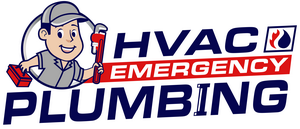7:10 AM "Ask a plumber" Series | |
How do I know if my drains need to be repaired? Answer: Signs that your drains may need repair include slow draining, water backing up, foul odors, gurgling sounds, or visible leaks. If you notice any of these signs, it's best to call a plumber for an inspection and repair. What are the most common causes of clogged drains? Answer: Common causes of clogged drains include accumulated food debris, hair, grease buildup, tree roots infiltrating the pipes, or foreign objects accidentally flushed down the toilet or drain.
Can I try to unclog my drains myself before calling a plumber? Answer: You can attempt to use a plunger or a drain snake to unclog minor blockages. However, if the clog persists or if you're unsure about using these tools, it's advisable to call a plumber to avoid causing further damage or potential injury. How often should I have my drains professionally cleaned? Answer: It is recommended to have your drains professionally cleaned every 1-2 years as a preventive measure, especially if you live in an older home or notice recurring drain issues. Regular cleaning can help prevent clogs and keep your plumbing system running smoothly. What do I do if my toilet is overflowing? Answer: First, turn off the water supply to the toilet by shutting off the valve behind the toilet. Next, use a plunger to try and remove the blockage. If the problem persists, or if you're unsure of how to fix it, call a plumber for assistance. How much will it cost to repair a plumbing or drain issue? Answer: The cost of repairs can vary depending on the severity of the problem, the time required for repairs, and the materials needed. It's best to contact a plumber for an assessment and an estimate specific to your situation.
Answer: The duration of repairs can vary depending on the nature and complexity of the problem. Minor repairs like fixing a leaky faucet may take only a few minutes, while more extensive repairs such as re-piping or replacing a water heater may take several hours or even a full day. What is the difference between a traditional water heater and a tankless water heater? Answer: A traditional water heater has a large storage tank that constantly heats and stores a specific amount of water. On the other hand, a tankless water heater heats water on-demand as it passes through the unit, eliminating the need for a storage tank. Which type of water heater is more energy-efficient? Answer: Tankless water heaters are generally more energy-efficient because they only heat water when it is needed. Traditional water heaters must continually heat and maintain the temperature of the stored water, which can result in energy waste. How long does a tankless water heater last compared to a traditional water heater? Answer: On average, a tankl Are tankless water heaters more expensive to install than traditional water heaters? Answer: Yes, tankless water heaters generally have a higher upfront cost compared to traditional water heaters. However, their energy efficiency can result in lower utility bills over time, potentially offsetting the initial investment. Do tankless water heaters provide a continuous supply of hot water? Answer: Yes, tankless water heaters provide a continuous supply of hot water because they heat water on-demand. However, the flow rate is limited, so if multiple hot water outlets are used simultaneously, the supply may be reduced. Can I switch from a traditional water heater to a tankless water heater? Answer: Yes, it is possible to switch from a traditional water heater to a tankless water heater. However, it may require additional modifications to your plumbing and electrical systems. Consulting with a professional plumber or contractor is recommended. Are tankless water heaters suitable for large households? Answer: Tankless water heaters can be suitable for large households, but it's important to ensure that you choose a unit with an appropriate flow rate and capacity to meet your hot water demands. A professional can help determine the right size for your household
Answer: Hydro jetting is a method used to clean and clear sewer lines by using high-pressure water streams. It involves inserting a specialized nozzle into the pipe, which releases pressurized water to remove blockages and debris. When should hydro jetting be used? Answer: Hydro jetting is recommended when other methods, such as snaking or chemical drain cleaners, fail to resolve persistent clogs or blockages. It is effective for clearing tree root infiltration, grease buildup, mineral deposits, or accumulated debris in sewer lines. Is hydro jetting safe for all types of plumbing pipes? Answer: Hydro jetting is generally safe for most types of plumbing pipes, including PVC, cast iron, and galvanized steel. However, older or damaged pipes may be more vulnerable to the high-pressure water, so it's important to consult with a professional plumber to assess the condition of your pipes before hydro jetting.
Answer: The duration of hydro jetting can vary depending on the length and condition of the sewer line. In general, it can take anywhere from 30 minutes to a few hours to complete the process. Factors such as blockage severity and accessibility may also impact the timeframe.
Answer: When performed by a trained professional, hydro jetting should not cause damage to properly installed and maintained sewer lines. However, if the pipes are old, corroded, or weakened, there is a slight risk of damage. It is important to hire a reputable plumber with experience in hydro jetting.
Answer: The frequency of hydro jetting depends on various factors, including the age of your plumbing system, the frequency of clogs or blockages, and the condition of your sewer lines. Generally, it may be recommended every 1-5 years as a preventive measure or as needed.
Answer: Hydro jetting can effectively remove tree roots from sewer lines; however, it may not provide a permanent solution. Root growth may continue over time, especially if the pipes are cracked or damaged. Regular maintenance and root intrusion prevention methods may be required.
Answer: A sump pump is a device used to remove water that has accumulated in a basement or low-lying area. It typically sits in a sump pit or basin and activates automatically when water reaches a certain level, pumping the water out and away from the building.
Answer: Sump pumps are commonly used in areas prone to flooding or excessive groundwater. They help prevent water damage to basements and crawl spaces by effectively draining water away before it can cause harm.
Answer: A sump pump is typically powered by electricity. When water reaches a predetermined level in the sump pit, a float switch activates the pump. The pump then pumps the water through a discharge pipe or hose, directing it away from the building's foundation. How often should a sump pump be checked? Answer: It is recommended to check your sump pump at least twice a year. Test its functionality by pouring water into the pit to ensure the pump activates and drains properly. Inspect the pump for any signs of damage or wear. It is best to perform these checks before the rainy season. What maintenance does a sump pump require? Answer: Regular sump pump maintenance includes clearing debris from the pit, testing the pump's operation, checking the discharge pipe for clogs, and ensuring the float switch moves freely. It is also important to inspect the pump's power source and verify that the backup battery (if applicable) is functioning.
Answer: A sump pump connected to the main power supply will not operate during a power outage. However, you can install a battery backup system or a water-powered backup pump to ensure the pump continues to function when the power is out.
Answer: The lifespan of a sump pump can vary depending on factors such as its quality, usage, and maintenance. Generally, sump pumps can last around 10 years, but routine maintenance, regular checks, and timely replacements can help ensure their longevity. Here, you can ask plumber a question
| |
⏰ Dispatcher support 24/7
📞 224-754-1984CALL ☎ Subscribe 👆 FORUM 🗣
North Shore, Northwest suburbs of Chicago, IL
Next & Previous posts
| Total comments: 0 | |


